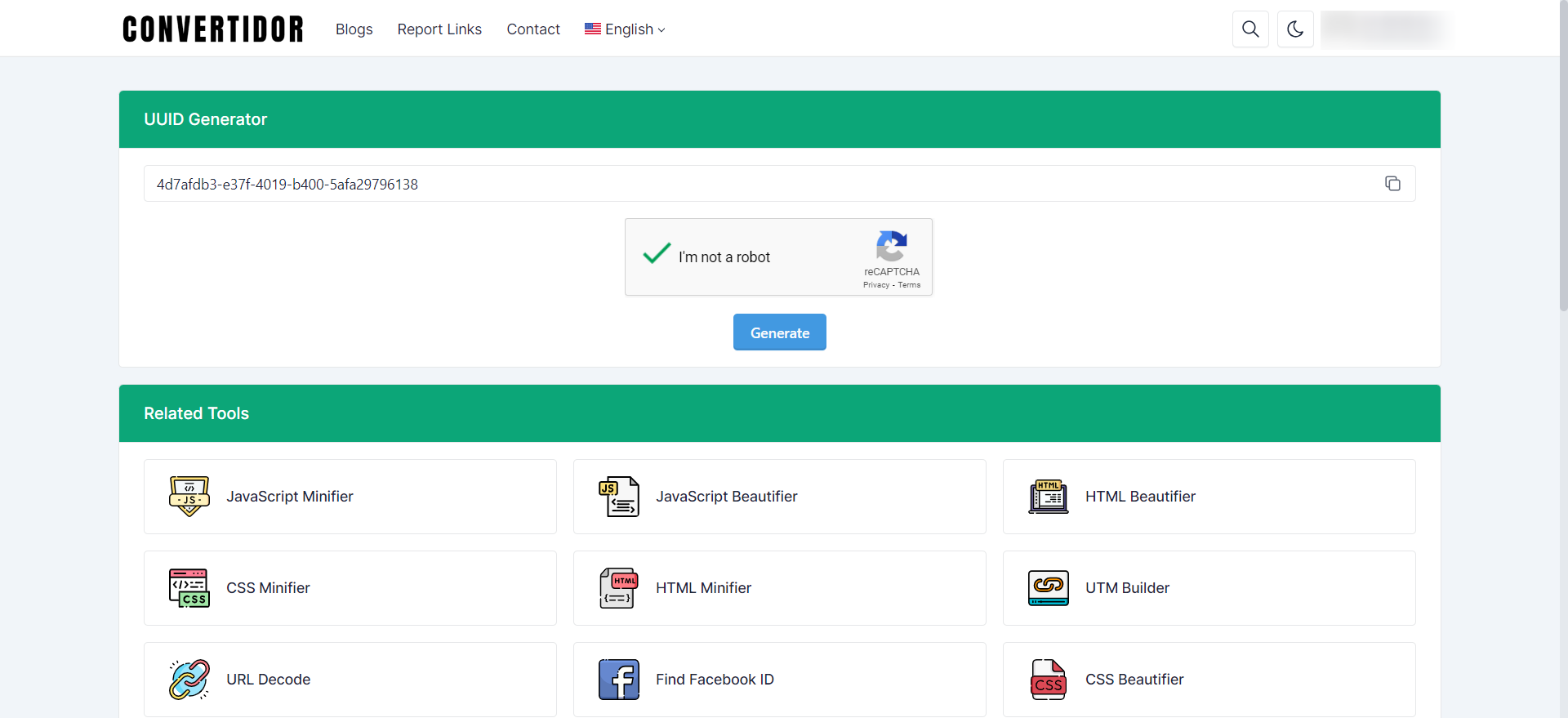UUID Generator
Convertidor.cc UUID Generator
What is the UUID Generator Tool?
The UUID Generator tool on convertidor.cc allows you to generate universally unique identifiers (UUIDs) easily. UUIDs are 128-bit identifiers used in software development, databases, and distributed systems to ensure that identifiers are unique across different systems and time. This tool provides a quick and reliable way to create UUIDs for various applications.
How to Use the UUID Generator Tool

- Generate UUID: Click the "Generate UUID" button.
- Copy the UUID: The tool will display a new UUID immediately, which you can copy and use as needed.
Why Use the UUID Generator Tool?
- Reliable Uniqueness: Guarantees that each generated UUID is unique, making it ideal for use in systems where uniqueness is crucial.
- Easy to Use: No configuration or setup is needed—just click a button and get your UUID.
- Free and Fast: Generate as many UUIDs as you need without any delay or cost.
- Versatile Application: Suitable for use in software development, database management, session IDs, and more.
Common Uses for the UUID Generator Tool
The UUID Generator tool is commonly used for:
- Database Keys: Create unique primary keys in distributed databases.
- Session Management: Assign unique session IDs for users in web applications.
- Transaction Identifiers: Ensure each transaction has a distinct identifier in financial systems.
- Software Development: Use UUIDs as unique identifiers for objects, components, and resources in software applications.
Benefits of Using the UUID Generator Tool
- Guaranteed Uniqueness: Ensures that each identifier is unique, reducing conflicts in databases or systems.
- Ease of Access: Generate UUIDs instantly without any technical barriers.
- High Efficiency: Provides a fast way to create multiple UUIDs, which is useful in large-scale projects.
- Free Service: Use the tool as much as needed without any restrictions.
How the UUID Generator Tool Solves Problems
The UUID Generator tool solves the problem of needing unique identifiers in environments where duplicates could cause significant issues, such as in databases or distributed systems. By providing a simple and reliable way to generate UUIDs, it ensures that developers and system administrators can maintain the integrity and efficiency of their systems.
FAQs
















